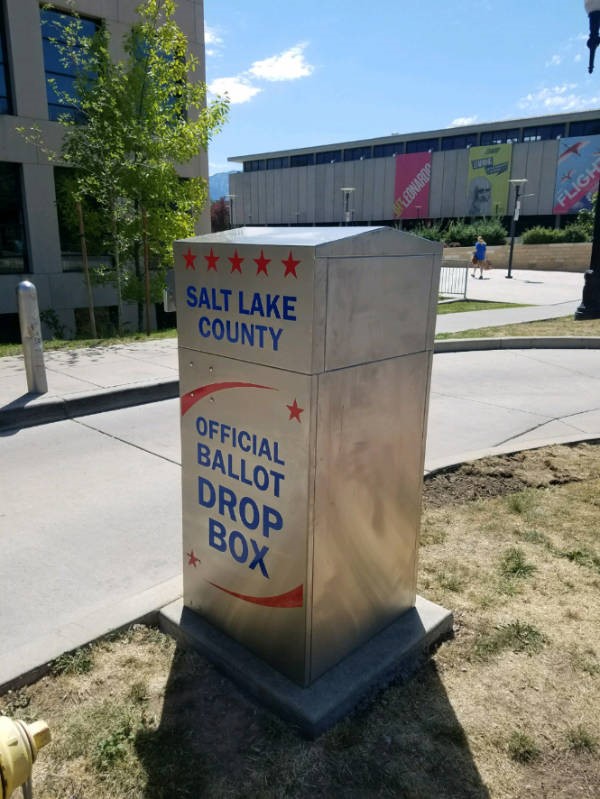
Council of American-Islamic Relations Minnesota v. Atlas Aegis, LLC
Case Summary
LWV Minnesota and CAIR Minnesota filed a federal lawsuit against Atlas Aegis, a private security firm which placed advertisements for hiring former special operations service members as armed guards to “protect” polling places, businesses, and residents from looting and destruction by “Antifa” elements. The plaintiffs asserted such actions constituted voter intimidation in violation of Section 11(b) of the Voting Rights Act of 1965.
Section 11(b) of the Voting Rights Act of 1965 states that, “No person, whether acting under color of law or otherwise, shall intimidate, threaten, or coerce, or attempt to intimidate, threaten, or coerce any person for voting or attempting to vote, or intimidate, threaten, or coerce, or attempt to intimidate, threaten, or coerce any person for urging or aiding any person to vote or attempt to vote.”
In October 2020, Atlas Aegis, LLC, a private security firm representing several unnamed clients, posted an advertisement on various websites and social media platforms seeking to hire former special operations forces members to act as armed security around polling places, residents, and businesses in Minnesota to protect them from looting and destruction. In an interview with the Washington Post, Atlas Aegis’s chairman claimed the armed guards would be deployed to protect polling places from being destroyed by “Antifa.” He declined to name Atlas Aegis’s clients, to specify where in Minnesota the guards would operate, or to specify their numbers.
On October 20, 2020, LWV of Minnesota and the Council on American-Islamic Relations-Minnesota (CAIR-Minnesota) filed a lawsuit in the United States District Court for the District of Minnesota asserting Atlas Aegis’s attempt to recruit armed guards to “protect” polling places violated Section 11(b). The plaintiffs requested a court order forbidding Atlas Aegis to (1) recruit armed guards to station at polling places and (2) take action to intimidate voters or prevent them from voting before and during the November 3, 2020, election and while the votes were being counted.
On October 29, 2020, the court granted a preliminary injunction and imposed the following conditions on defendants, who were immediately barred from:
- Deploying armed agents within 2,500 feet of Minnesota polling places or otherwise monitoring Minnesota polling places both during early in‐person voting and on Election Day, November 3, 2020;
- Threatening to deploy armed agents to Minnesota polling places; and
- Otherwise intimidating, threatening, or coercing voters in connection with voting activities in Minnesota.
Subsequently, the court approved a consent decree agreed upon by the parties on February 16, 2021, in which Atlas Aegis agreed not to deploy armed agents at Minnesota election sites, or otherwise intimidate, threaten, or coerce voters, persons aiding voters, or persons engaged in tabulating, counting, or reporting votes in Minnesota, among other provisions.
LWV of Minnesota and its co-plaintiffs were represented in this matter by Lathrop GPM LLP, Emery Celli Brinkerhoff Abady Ward & Maazel LLP, and Free Speech for People.
LWV Timeline
Plaintiffs file complaint
LWV Minnesota and CAIR-Minnesota file a federal lawsuit, asserting defendant Atlas Aegis LLC’s plans to hire private armed security to guard polling places against “Antifa” violates Section 11(b) of the Voting Rights Act of 1965.
Plaintiffs move for temporary restraining order and preliminary injunction
Along with the complaint, LWV of Minnesota and CAIR-Minnesota file motions for a temporary restraining order, preliminary injunction, and an expedited hearing, asking the court to forbid Atlas Aegis from deploying armed agents within 2,500 feet of Minnesota polling places or otherwise intimidating, threatening, or coercing voters in connection with voting activities in Minnesota, among other relief.
Court grants preliminary injunction
The court partially grants plaintiffs’ requested relief, issuing an order banning Atlas Aegis from “(i) deploying armed agents within 2,500 feet of Minnesota polling places or otherwise monitoring Minnesota polling places both during early in‐person voting and on Election Day, November 3, 2020; (ii) threatening to deploy armed agents to Minnesota polling places; and (iii) otherwise intimidating threatening, or coercing voters in connection with voting activities in Minnesota.”
Parties reach agreement on consent decree
After negotiations, the parties agree upon a consent decree, in which defendants agree not to deploy armed agents within 250 feet of, or otherwise monitor (1) any early voting location for any Minnesota election; (2) any Minnesota polling place; or (3) any place in Minnesota where ballots are being counted, recounted, or canvassed, or where presidential electors are meeting to vote, among other provisions.
Court approves consent decree
The court issues an order approving the consent decree.





